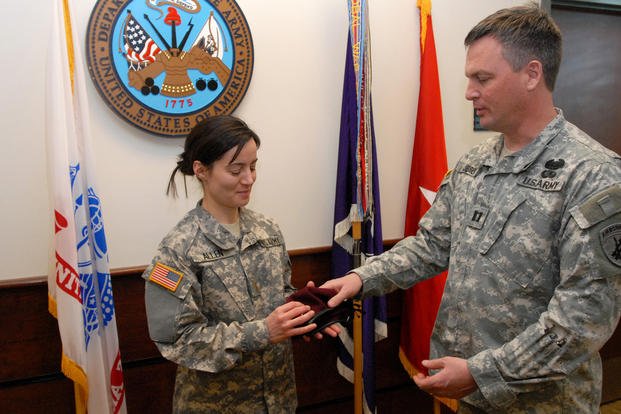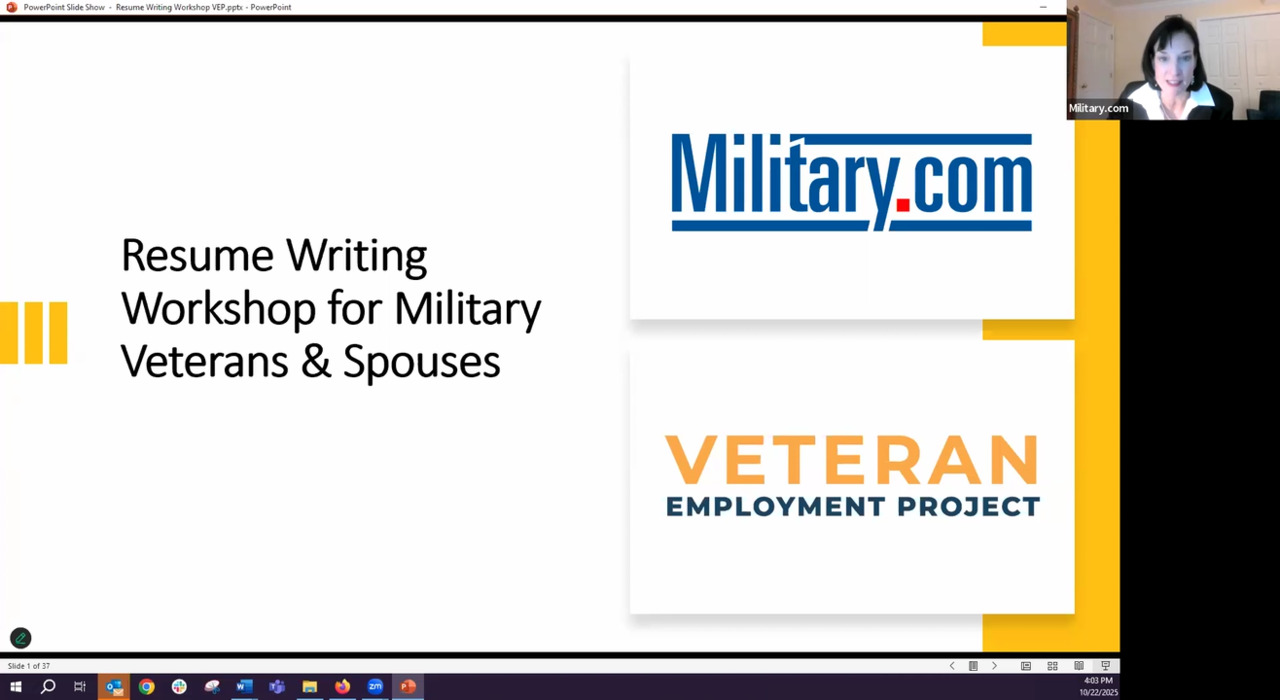Looking to join the U.S. Army? You probably have many questions about what Army life and training are like. What are the benefits? What is training like? What does it pay? How can you get ready?
Fortunately Military.com has answers to the most common questions about joining the Army. Find those answers below.
What is the U.S. Army?
The U.S. Army is one of six branches of the U.S. Armed Forces. It is a strategic instrument of national policy that has served our country well in peace and war for more than two centuries. Soldiers enable America to fulfill its world leadership responsibilities of safeguarding our national interests, preventing global calamity and making the world a safer place. We do this by finding peaceful solutions to the frictions between nation states, addressing the problems of human suffering and, when required, fighting and winning our nation's wars -- our nonnegotiable contract with the American people.
What are the qualifications to join the Army?
The following are the basic requirements for enlisting:
- You must be a U.S. citizen or a resident alien.
- Be between the ages of 17-34. Seventeen-year-olds need parental consent.
- Have a high school diploma.
- Have no more than two dependents.
- Pass the Armed Services Vocational Aptitude Battery (ASVAB) test.
- Pass a Military Entrance Processing Station medical exam.
What's the ASVAB?
The ASVAB is a test that measures your aptitudes. It consists of 10 short individual tests covering word knowledge, paragraph comprehension, arithmetic reasoning, mathematics knowledge, general science, auto and shop information, mechanical comprehension, electronics information, numerical operations and coding speed. When you take the ASVAB before enlisting, not only do you receive scores on each of these individual tests, but several individual test results are combined to yield three academic composite scores: verbal, math and academic ability.
Related: Take an ASVAB practice test
What are some benefits of joining the Army?
- Steady income: You are paid twice a month, on the first and 15th, every month, based on your pay grade and service requirements. Learn more about military pay.
- Advancement: You are promoted based on job knowledge, your performance, time in pay grade and service requirements.
- Paid vacation: You earn 2.5 days of paid vacation per month for a total of 30 days each year up to 60 days.
- Training: You choose your career path based on your aptitude, physical abilities, security clearance, motivation and determination. All specialties are open to women -- including combat roles.
- Health care: While on active duty, you will receive complete medical and dental care at no cost.
- Life insurance: Active-duty members select up to $200,000 in term life insurance known as SGLI for $18 per month.
- Allowances: You also may receive additional tax-free money for Basic Allowance for Housing (BAH) if government housing is not available; Basic Allowance for Subsistence (BAS), if government food facilities are not available in the area you are stationed; and a uniform allowance (for enlisted personnel only) to help maintain your uniform.
- Tax advantage: Only your basic monthly pay is subject to federal or state income tax.
- GI Bill: The Post-9/11 GI Bill will help pay for college education or vocational training.
- Tuition assistance: While on active duty, you may continue your education and may be helped in defraying the cost of college-accredited courses.
- Additional benefits: There are exchange and commissary privileges, moving allowances, temporary lodging expenses, travel, survivor benefits, Veteran Home Loans and more.
Are there any Army enlistment bonuses?
The Army regularly offers enlistment bonuses for both active duty and the Army Reserve. Enlistment bonus amounts depend on eligibility, your military occupation specialty (MOS) choice, ASVAB score and education level. Keep in mind that they tend to change frequently according to the needs of the service.
Does the Army take people with prior service?
Yes. The Army accepts prior-service people.
Can I join the military if I'm not a U.S. citizen?
Only U.S. citizens or foreign nationals legally residing in the United States with an Immigration and Naturalization Service Alien Registration Card ("Green Card" -- INS Form I-151/551) may apply. Applicants must speak, write and read English fluently.
Can the Army help me obtain U.S. citizenship?
No. The U.S. military cannot assist foreign nationals in obtaining admittance into the United States.
Can I join the Army if I live overseas?
Regulations prohibit the forwarding of recruiting information through international mail, even to U.S. citizens living in foreign countries. Request more information online.
How long is Army basic training?
Army basic training is 10-weeks long and divided into three stages: red phase, blue phase and white phase. Graduation occurs in week 10. It includes a family day, and is followed by shipping out to Advanced Individual Training (AIT).
What is Army basic training like?
Red Phase (weeks 1-3): In this phase you'll start your transformation from volunteer to soldier. You'll learn the Army values and fundamentals of soldiering. You'll also take the Army Physical Fitness Test (APFT).
White Phase (weeks 4-5): White Phase, also known as the Rifleman or Gunfighter Phase. This phase focuses heavily on combat skills and is all about marksmanship.
Blue Phase (week 6-9): These weeks include a lot of testing. During them you'll also learn leadership skills and self-discipline, and improve your understanding of teamwork.
Basic training graduation (week 10): The final week is all about capping your training, followed by sharing your accomplishments with your friends and family.
Should I do anything before I go to basic training?
Yes. For tips on how to prepare yourself physically and mentally for boot camp, see military fitness guru Stew Smith's articles.
How do I become an Army officer?
You can become an officer through the U.S. Military Academy, Army ROTC, OCS or Direct Commissioning programs. If you have or soon will have a four-year college degree, you may consider enlisting in the U.S. Army with the intention of becoming an officer. Graduates of the Army Officer Candidate School (OCS) are commissioned as second lieutenants (O-1) and earn sergeant (E-5) pay while in the school. This program is available to qualified applicants, with or without any previous military service, who enlist for a period of three years.
What is the U.S. Military Academy?
The U.S. Military Academy at West Point, New York trains Army officers. Its mission is to educate, train and inspire the Corps of Cadets so that each graduate is a commissioned leader of character committed to the values of duty, honor, country; professional growth throughout a career as an officer in the United States Army; and a lifetime of selfless service to the nation.
How do I apply to the academy?
There are five steps: knowing the basic application requirements for a nomination, completing a candidate questionnaire, completing the candidate kit, securing a nomination from a congressional representative, senator or other qualifying authorities and completing testing. General qualifications include:
- Between 17 but not yet 23 years of age by July 1 of year admitted.
- A U.S. citizen at time of enrollment (exception: foreign students nominated by agreement between U.S. and another country).
- Unmarried.
- Not pregnant or legally obligated to support a child.
- An above-average high school or college academic record.
- Strong performance on the standardized American College Testing (ACT) assessment program exam or the Scholastic Aptitude Test (SAT).
- Be in good physical and mental health.
- Pass a medical exam.
- Above-average strength, endurance and agility.
- Adequate performance on the USMA physical aptitude exam.
Related: How to Apply for a Service Academy Nomination from Congress
What is Army Officer Candidate School?
Officer Candidate School (OCS) is another way to become an officer in the Army. After completing basic combat training, candidates participate in rigorous training for 14 weeks and then attend the Officer Basic Course.
How do I qualify for Army OCS?
In general terms, an officer must be a college or university graduate before commissioning (except for enlisted soldiers on active duty), is trained by the Army to lead and manage, and voluntarily can leave the military if not under any officer service obligation at the time. To qualify, you must:
- At least 19 years old and not have reached your 29th birthday before training
- A U.S. citizen
- A college graduate with a four-year degree or higher, or for the Army Reserve option, you must have completed 90 semester hours
- Healthy and in good physical condition
- In good moral standing
What about direct Army commissions?
As a professional lawyer, engineer, member of the clergy or doctor, you also may qualify for a direct commission. Request more information online.
Does the Army promote enlistees to the officer ranks?
Yes. This program is known as "green to gold."
What if I'm a physician or dentist?
The Army also is seeking qualified health professionals. For more information about the medical programs. You can have someone contact you about applying your medical trade in the service by contacting a recruiter.
Does the Army have Reserve opportunities?
Yes. You can request more information online. For more detailed information on the Reserves, you also can check the Army Reserves section.
What are the qualifications to join the Army Reserve?
You must be:
- a U.S. citizen or permanent resident alien
- 17-42 years old
- healthy and in good physical condition
- in good moral standing
- High school or equivalent education
What is a drill?
This applies to Reserve and Guard service. Drills are periods of inactive duty training (IDT), under orders, scheduled to augment training. No more than two drills can be performed on one calendar day, and each drill must be at least four hours long. Most units schedule multiple drills over one weekend each month (two drills Saturday and two drills Sunday).
What training will I receive if I join the Guard or Reserve?
Depending on the Reserve or Guard program, you will receive boot camp and maybe A-school training. Weekend or weekday drills are considered training.
What if I have a problem getting time off from my employer to fulfill my Reserve military service obligations?
By law, as a member of the Reserve, you, upon request, must be granted a leave of absence to satisfy a requirement for military training. The Uniform Services Employment and Reemployment Rights Act (USERRA) requires employers to provide Reservists with time away from their jobs to perform military duty. However, you must notify your employer that you intend to take military leave. You must be reemployed after completion of your military duty and return to your job within a reasonable time. You must be treated as though you had never left employment, including scheduled pay raises, promotions or credit for longevity or vacation. Your employer only has to hold a job open for 60 months if you accept voluntary orders.
How do I choose my school?
Generally, you can attend any school you qualify for. The results of your ASVAB determine what schools you qualify for.
Related: Take an ASVAB practice test
Is technical training like boot camp?
No. This is training for a specialty you have chosen. It may involve work details and duty, but the main focus is on technical and professional training.
Will I be paid while in training?
Yes, you will be paid for every day you serve according to published pay schedules for your pay grade, in addition to any temporary duty or travel allowances.
What should I ask my Army recruiter?
Recruiters must present an accurate picture of service. You should be aware of all aspects of the military. Be sure you fully understand the enlistment contract. You should ask about:
- Details and qualifications for each specialty.
- Films or videos about training and duties.
- Boot camp.
- Length and location of training.
- Special enlistment programs.
- Overseas assignments, remote and long duty.
- Haircut and grooming standards.
- Off-duty education and educational benefits.
- Guaranteed training programs.
Where do I get more information about joining the Army?
We can put you in touch with recruiters from the different military branches. Learn about the benefits of serving your country, paying for school, military career paths and more: sign up now and hear from a recruiter near you.















